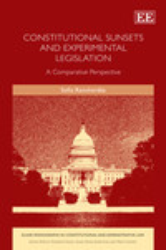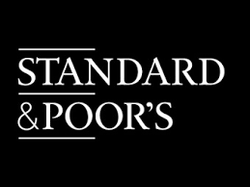The recent news

Feb. 12, 2015
Sectorial Analysis

There is no point in counting one by one the powers of a Regulator and add them to try to measure its power. We must measure what consideration the others have of the exercise of its powers it.
So it is with its advice power. Sometimes, in fact, its opinion is worth as much as if it adopted the text itself, as those who read its comments are impressed. Sometimes, the Regulator may have taken a rational opinion, motivated and relevant, those to whom it is addressed don't care.
The result is often that the Regulator takes note of this weakness against which strictly within the framework of this opinion mechanism the regulatory body can do nothing, but in a continuation of powers between the Ex Ante and the Ex post, because the area is an enclosed space, the diverse attitudes will be remembered, especially when the Regulator will be exercising its powers to resolve disputes or its power of sanctions. And there ...
Take the example of railway activities. The French Regulatory Authority of Railway Activities (Autorité de Régulation des Activités Ferroviaires - ARAF )) is a new regulator, in front of powerful actors, where the State has interests. The fact that these interests are legitimate don't remove the weight that such integrated public operator is facing the regulator. On 27 November 2014, ARAF expressed negative opinions about the main draft decrees. January 6, 2015, the Autorité de la Concurrence (French Competition Authority) has also made a critical opinion, including in its discontent and the law of "Railway Reform" and the draft decrees.
February 11, 2015, 7 decrees implementing the February 10, 2015 have been published. Adverse opinion on three of them by the regulator (ARAF) were swept away. We can admit quite, both regarding the Competition Authority opinion, since we are in terms of regulation and not in the simple competition system, and about ARAF opinion because its opinion is only a consultative and executive power remains in line with the will of Parliament. It's almost as if the Regulator had not said a word.
Thus, under the hierarchy of norms, in the letter and in spirit, the decrees are in line with the law they enforce. No blame.
But it is not excluded that the regulator of rail activities can remember of having been so little after, when it must be considered as a kind of judge in civil functions (dispute resolution) and in punitive functions (sanctions) that almost the same will appear before the regulatory body.
Feb. 12, 2015
Events

This conference is managed by Professor Julien Chaisse.
It is organized by the Centre for Financial Regulation and Economic Development, Faculty of Law – The Chinese University of Hong Kong.
This conference aims to better understand the legal mechanisms for international regulatory mechanisms of water, especially in view of climate change, to articulate the role of states and private investment contracts, to understand the legal nature of water as a "resource" but also as "human right" especially in view of the determination of its price, and to mesure the legal consequences of globalization on the matter.

Jan. 23, 2015
Breaking news

What does Regulating to operators? How do they feel? Do they internalize? Does it means to them, simply a cost or an impact on their strategy on the markets?
The question is all the more important that you adhere to the theory of incentives, whereas the adequate regulatory techniques are those that produce the desired behavior by regulated operators.
The issue is not whether the Regulating is included in spending. This is acquired. For example, in two years the banks move internal forces of certain services, such as credit, to the compliance department and regulation. The regulation may represent a very high share of costs: it lies in the fact that through compliance the regulatory system has internalized the costs of regulation in the firms.
But does it make to change the strategic choice of the operator on the market, not only increase the number internal processes?
To listen Lloyds Blankfein, chairman of Goldman Sachs in Davos, words immediately commented in the British press as considerations allayed regarding Regulation!footnote-22, we doubt it.
Mr. Blankfein Lloys who also sits on the board of the Harvard Law School, asked about the question of whether the bank doesn't suffer from the pressure of regulations and supervisors replied that must be considered especially in the very design of technical systems to meet compliance but that for him, Regulation isn't really an annoyance: it is a "background noise". He compares it to music: something that he listens a lot, but while he is doing its job. Something which remains outside.
This means that Regulation occupies its technical regulatory services but doesn't affect its own work of invest bank president.
We can rejoice, since it shows that Regulation doesn't impede free enterprise and the operator's choice. One might worry if Regulation should have an "educational" function wanting influence how the president himself decides. In this case, Regulation must cease to be a kind of expensive elevator music.
It is not sure that regulators and supervisors have the same understanding

Jan. 22, 2015
Sectorial Analysis

A simple question: be regulator, is it a profession?
As soon as one asks the question, it should be down. Indeed, the time has passed when the regulator was a natural person. Today, in most cases, the regulator takes the form of a Regulatory Authority, that is to say an entity with or without legal personality, incorporated in the State or professional.
Individuals appear as a member of the Authority, even if it is true that the President of the Regulatory Authority often has a very importan role!footnote-17.
The choice of Commissioners is crucial to the independence and effectiveness of the regulatory authority. It is appropriate that the person has "authority" over the area, must be respected and participates effectively in the collective action of the College.
Let us try to recall the two sets of criteria to determine how one thinks the "good regulator" before taking such case the appointment of Mr. Yann Padova as a new member of the College of the Commission de Régulation de l'Énergie (French Energy Regulatory Commission).
Jan. 21, 2015
Breaking news

Just released the book of Sofia Ranchordiàs, Constitutional Sunsets and Experimental Legislation. This topic is particularly important in regulatory systems where this method is used very often.
As soon as Legislation is case management, it becomes a matter of time, good timing, and efficiency.
Because the figure of the Law has changed its terms should change. The most appropriate law then appears the "experimental law", the "trial law." This ephemeral legislation as regulatory bodies promote, can claim to be part of the future only if it has "successful". Operators must be good students if they want to conserve the Law!footnote-14.
Thus, the law is only a draft and it is its success that allows the standard access to the status that was natural: the Act that applies to the future.
These precarious laws that certains authors and regulatory bodies present as the right model, challenge the constitutional principles, the Constitution itself being the supreme law governing the future.
This book shows the extent to which notions of efficiency, testing, flexibility, can attack the very idea of Parliament Law and Constitution. It is true that in regulatory systems everything becomes simple regulations, including laws but it is also true that constitutional courts are restive to admit "experimental laws".
Cet ouvrage montre jusqu'à quel point les notions d'efficacité, de test, de flexibilité, peuvent attaquer l'idée même de Loi et de Constitution. Il est vrai qu'en Régulation, tout ne deviendrait que réglementation, y compris la loi et il est vrai que les cours constitutionnelles sont rétives à admettre les "lois expérimentales".

Jan. 20, 2015
Sectorial Analysis

The original spirit of the Common Agricultural Policy (CAP) was to think of agriculture as a sector unfolding in time, subject to natural hazards, including actors, both farmers and the population that is fed, having interests on which national states shall ensure.
The spirit of the new Common Agricultural Policy is different, even opposite, which explains the length of its gestation. Indeed, competition becomes the principle guarantor of innovation, fair prices for consumers and competitiveness of the European agricultural industry facing global competition, which leads to assist agricultural enterprises, to worry about products quality, away from the subtraction of these products of the principle of competition.
The political agreement was reached in 2013, the basic technical texts were completed in 2013 for the new apparatus be applicable to January 1, 2014, including a Regulation of 17 December 2013 establishing a common organisation of the markets in argricultural products (CMO).
It points out that the agricultural sector is subject to competition law only if the Community legislature didn't stipulate differently!footnote-16. The Regulation almost affirms the opposite principle: "It should be provided that the rules on competition relating to the agreements, decisions and practices referred to in Article 101 TFEU and to abuse of a dominant position apply to the production of, and the trade in, agricultural products, provided that their application does not jeopardise the attainment of the objectives of the CAP.". The Regulation details: A special approach should be allowed in the case of farmers' or producer organisations or their associations, the objective of which is the joint production or marketing of agricultural products or the use of joint facilities, unless such joint action excludes competition or jeopardises the attainment of the objectives of Article 39 TFEU.
On 15 January 2015 the European Commission launches a consultation on the "joint salling of olive oil, beef and veal livestock and arable crops, cases covered by the Regulation.
How the new balance will be between competition and regulation?!footnote-20
It is likely that future guidelines will be the place of expression of this balance.
Jan. 19, 2015
Breaking news

We hardly listen to to sermons. This is probably why Alain Supiot puts us on the table the text of Bossuet only occupying few pages, but since 1659 occupies the minds on "l'éminente dignité des pauves" (the eminent dignity of the poor). When Bossuet speaks of wealth and poverty, economists have interest in reading it. When Bossuet speaks of just order and "rightful place", lawyers must read it.
Alain Supiot comments it by writing to the following "Le renversement de l'ordre du monde" (The reversal of the order of the world).
Bossuet reminds that wealthy people think everything is owed to them while grace is given to the poor. Bossuet contends that rich people have interest to share with the poor, for thus it can alleviate the wealth that overwhelm them and they can enter the community (composed by the Church) in which poor people occupy the first place by natural order.
In his study, Alain Supiot looks back on the very definition of 'poverty', which accounts for the money the individual has. He takes up the theme of Bossuet to assert that, contrary to what the result of statistical methods (how much per person per day), the wealthy are "poor" since the market isolates them, spreading them of solidarity. Yet the natural order should lead them to share, by paying taxes, and other mechanisms through the welfare state. But he notes that the State departs increasingly this function, drawn in by this model only wealthy (the "rich-poor"), the only available model becoming what Alain Supiot calls "le marché total" (total market)!footnote-15.
We can no share this view of the world, for example if it is believed that the rich share (Social Responsibility Company theory), or if one believes that the state - sort of church - was often selfish, but already listen to the first advice: read Bossuet.
Reading the Union Address by President Barack Obama of the 21th of January 2015 themed fair sharing between rich and poor by public redistribution, we think back to Bossuet.

Jan. 16, 2015
Breaking news

One can only be amazed or even upset.
First, the agreement is not yet concluded. It would be in a month or two. How is it that we already know? Secondly, contracts, because the transaction is a contract listed by the Civil Code, are not intended to be public. How is it that we already know everything? The person who gave the information "was keen to remain anonymous." It would have suspected ......
Third, it is true that the regulation of rating agencies is a big issue. Special texts have been taken but academics think the right tools stay missing and that is probably the liability, general legal instrument, which is the most appropriate.
But the responsibility of commitment requires a trial, evidence, respect for the rights of defense, due processs, legality of offenses and penalties.. Here, $ 1 billion is paid by the company only to avoid that opens a lawsuit against it. The allegation is the rating agency would have underestimated the subprime risk.
But on one hand everyone says that the rating agency has actually done the facts allegued since payroll so that the file doesn't open. On the other hand, and from the perspective of regulating the information that would be out of the trial, a trial being a form of crisis, will not come out.
So this sort of industry fof "Deals of Justice", apart from the fact that some describe the phenomenon as a "racket", isn't a "decriminalization" of regulation for a "civilized regulation" through the transaction contract. On the contrary, this movement that is spreading constitutes an increased repression whic diminishes rights of defense for the operator and information for the sector.
One can only be amazed or even upset.
